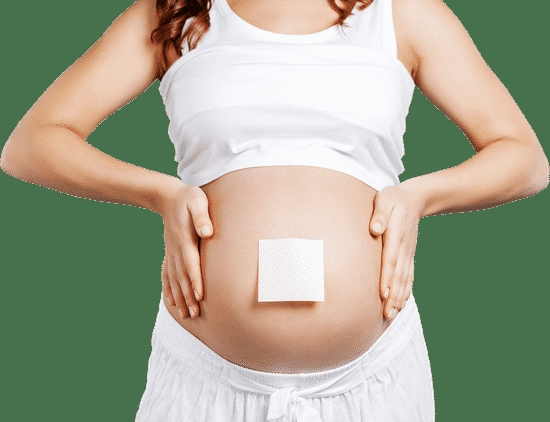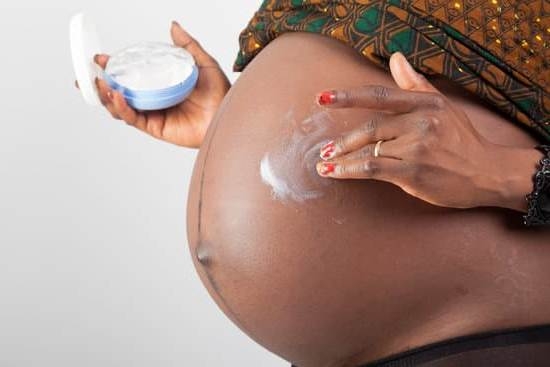Are you experiencing itchy, red, or irritating rashes during your pregnancy? You may be dealing with a pregnancy rash. Pregnancy can bring about a variety of skin changes and conditions, including rashes, that can cause discomfort and concern for expecting mothers. Understanding the causes, types, symptoms, and treatment options for pregnancy rash is essential for managing this common issue.
During pregnancy, hormonal changes can affect the skin in various ways, leading to the development of rashes. These rashes can range from mild to severe and may require medical attention. In this article, we will explore the different aspects of pregnancy rash, including its causes, symptoms, diagnosis, treatment options, prevention tips, home remedies, and when to seek medical help.
By gaining a better understanding of pregnancy rash and how to manage it effectively, expectant mothers can alleviate discomfort and take necessary steps to ensure the well-being of themselves and their growing baby. Let’s delve into the world of pregnancy rash and explore ways to address this common concern during pregnancy.
Causes of Pregnancy Rash
Pregnancy rash, also known as pruritic urticarial papules and plaques of pregnancy (PUPPP), is a common skin condition that occurs in pregnant women. It typically presents with itchy red bumps and hives on the abdomen, but can also spread to other areas of the body. The exact cause of pregnancy rash is not fully understood, but there are several factors that are believed to contribute to its development.
Hormonal Changes
One of the main causes of pregnancy rash is attributed to the hormonal changes that occur during pregnancy. Fluctuations in hormone levels, particularly an increase in estrogen, can lead to skin irritation and rashes.
Stretching of the Skin
As the abdomen expands to accommodate the growing fetus, the skin undergoes significant stretching. This stretching can cause irritation and inflammation, contributing to the development of pregnancy rash.
Allergic Reactions
Some experts believe that pregnancy rash may be triggered by allergic reactions to fetal cells or products within the placenta. This immune response may lead to the characteristic itchy and inflamed skin lesions associated with PUPPP.
In addition to these contributing factors, genetics and maternal health history may also play a role in predisposing women to developing pregnancy rash. It is important for expectant mothers experiencing symptoms of PUPPP to consult with their healthcare provider for accurate diagnosis and appropriate management.
Types of Pregnancy Rash
Pregnancy rashes are a common occurrence during pregnancy, and can be caused by a variety of factors. These rashes can be uncomfortable and sometimes even painful, so it’s important for pregnant women to understand the different types of pregnancy rashes that they may experience.
Pruritic Urticarial Papules and Plaques of Pregnancy (PUPPP)
One of the most common types of pregnancy rashes is PUPPP, which usually occurs during the third trimester. This rash typically starts on the abdomen and spreads to other parts of the body, such as the thighs, buttocks, and arms. It is characterized by red, itchy bumps and hives, which can cause a great deal of discomfort for pregnant women.
Prurigo of Pregnancy
Another type of pregnancy rash is prurigo of pregnancy, also known as atopic eruption of pregnancy. This condition causes small, itchy bumps to appear on the arms and legs. Prurigo can be quite bothersome for pregnant women, as the itching can be intense and persistent.
Pemphigoid Gestationis
Pemphigoid gestationis is a rare autoimmune condition that causes a blistering rash to develop on the abdomen and other parts of the body. This rash can be extremely uncomfortable and may lead to scarring if not properly treated. In some cases, pemphigoid gestationis can also affect the baby in utero.
Understanding the different types of pregnancy rashes can help expectant mothers recognize when they may need medical attention for their symptoms. It’s important to consult with a healthcare provider if any concerning rashes develop during pregnancy. Using safe preventative measures and home remedies are also crucial in managing these rashes effectively.
Symptoms and Signs of Pregnancy Rash
During pregnancy, many women experience changes in their skin, including the development of rashes. These rashes can be caused by a variety of factors, including hormonal changes, increased blood flow, and stretching of the skin. It is important for expectant mothers to be aware of the symptoms and signs of pregnancy rash in order to seek appropriate treatment and relief.
Some common symptoms and signs of pregnancy rash include:
- Red or pinkish bumps on the skin
- Itching or burning sensation
- Inflammation or swelling
- Rash that appears on the abdomen, breasts, thighs, or buttocks
- Patches of dry, flaky skin
In some cases, pregnancy rash can be accompanied by other symptoms such as fever or chills. It is important to monitor any changes in your skin and seek medical attention if you experience any concerning symptoms.
It is not uncommon for pregnant women to develop specific types of rashes such as pruritic urticarial papules and plaques of pregnancy (PUPPP), also known as polymorphic eruption of pregnancy (PEP). These conditions typically present with raised red bumps and severe itching. Knowing the symptoms and signs of these specific types of pregnancy rashes can help expectant mothers differentiate between different skin conditions and seek appropriate treatment.
Diagnosis and Treatment for Pregnancy Rash
When dealing with a pregnancy rash, it is important to seek the appropriate diagnosis and treatment in order to alleviate discomfort and prevent any potential complications. A pregnancy rash can be caused by a variety of factors, including hormonal changes, stretching of the skin, and allergic reactions. In some cases, the rash may also be a symptom of an underlying condition that requires medical attention.
To diagnose a pregnancy rash, your healthcare provider will likely perform a physical examination and ask about your medical history. In some instances, additional tests such as blood work or skin biopsies may be necessary to determine the cause of the rash. It is important to accurately diagnose the type of pregnancy rash in order to provide effective treatment.
Treatment for pregnancy rash varies depending on the specific type of rash and its underlying cause. In many cases, topical creams or ointments may be recommended to soothe itching and reduce inflammation. For more severe cases or rashes caused by an underlying condition, oral medications or other medical interventions may be necessary. It is crucial to follow your healthcare provider’s recommendations for treatment in order to effectively manage the pregnancy rash.
| Diagnosis | Treatment |
|---|---|
| Physical examination | Topical creams or ointments |
| Medical history | Oral medications |
| Blood work or skin biopsies | Other medical interventions if necessary |
Prevention Tips for Pregnancy Rash
During pregnancy, many women experience changes in their skin, including the development of rashes. These rashes can be uncomfortable and sometimes even painful. However, there are steps that expecting mothers can take to prevent these rashes from occurring or worsening.
Prevention Tips
- Avoid known triggers: If you have had a rash in the past due to certain skincare products or fabrics, it is best to avoid them during pregnancy. Stick to gentle, fragrance-free products and breathable, natural fabrics.
- Maintain good hygiene: Keeping the skin clean and dry can help prevent rashes from developing. Be sure to shower regularly with a mild, unscented soap and pat your skin dry rather than rubbing it.
- Stay hydrated: Drinking plenty of water can help keep your skin hydrated and reduce the risk of developing dry, itchy patches that can lead to rashes.
It is important for pregnant women to follow these prevention tips as they can significantly reduce the chances of developing a pregnancy rash. By taking proactive measures to care for their skin, expecting mothers can enjoy a more comfortable and pleasant pregnancy experience.
Home Remedies for Pregnancy Rash
Pregnancy rash, also known as pruritic urticarial papules and plaques of pregnancy (PUPPP), can cause discomfort and irritation for expectant mothers. While seeking medical advice is crucial, there are also several home remedies that can help alleviate the symptoms of pregnancy rash.
One effective home remedy for pregnancy rash is to apply cold compresses to the affected areas. This can help reduce itching and inflammation, providing some relief from the discomfort. Additionally, taking oatmeal baths or applying oatmeal paste can soothe the skin and provide relief from itching.
Another helpful home remedy for pregnancy rash is to keep the skin well-moisturized. Using fragrance-free moisturizers or lotions can prevent dryness and help reduce itching. It’s important to choose products specifically formulated for sensitive skin, as certain ingredients may exacerbate the rash.
Some pregnant women find relief from pregnancy rash by using natural remedies such as aloe vera gel or coconut oil. These substances have soothing properties that can help calm irritated skin. However, it’s essential to consult with a healthcare provider before using any new remedies, especially during pregnancy.
| Home Remedy | Effect |
|---|---|
| Cold Compresses | Reduces itching and inflammation |
| Oatmeal Baths/Paste | Soothes the skin and provides relief from itching |
| Moisturizing Lotions | Prevents dryness and helps reduce itching |
| Aloe Vera Gel/Coconut Oil | Soothes irritated skin |
When to See a Doctor for Pregnancy Rash
It is always important to seek medical attention if you are experiencing unusual symptoms, especially during pregnancy when the health of both the mother and the baby is of utmost importance. If you notice any concerning changes in your skin, such as a rash that does not seem to go away or gets worse, it is essential to consult with a doctor.
If you have tried home remedies and over-the-counter treatments for pregnancy rash without success, it may be time to see a healthcare professional. Additionally, if the rash is accompanied by other worrisome symptoms such as fever, chills, nausea, or vomiting, it is best to seek medical attention promptly.
In some cases, a pregnancy rash may be a sign of a more serious underlying condition that requires immediate medical care. Certain types of rashes during pregnancy can indicate conditions such as PUPPP (Pruritic Urticarial Papules and Plaques of Pregnancy), cholestasis of pregnancy, or even an allergic reaction that could pose a risk to the health of the baby.
Therefore, it is crucial to not dismiss persistent or severe rashes during pregnancy and consult with a healthcare provider for proper evaluation and treatment.
Conclusion and Final Thoughts on Dealing With Pregnancy Rash
In conclusion, dealing with pregnancy rash can be a challenging and uncomfortable experience for many women. It’s important to remember that while pregnancy rash can be bothersome, it is usually harmless and often resolves on its own after childbirth. However, it is crucial to seek medical advice if the rash becomes severe or causes excessive discomfort.
Taking preventive measures such as wearing loose-fitting clothing, avoiding harsh chemical irritants, and staying well-hydrated can help reduce the risk of developing pregnancy rash. Additionally, seeking prompt medical attention and following the prescribed treatment plan can effectively manage the condition and alleviate symptoms.
In summary, by staying informed about the causes, types, symptoms, diagnosis, and treatment options for pregnancy rash, women can better navigate this common skin condition during pregnancy. It’s essential to prioritize self-care and consult with healthcare professionals to ensure a healthy pregnancy experience while managing the discomfort associated with pregnancy rash.
Frequently Asked Questions
Is Skin Allergy Common in Pregnancy?
Skin allergy during pregnancy is not uncommon, with some women experiencing new allergies while others may see existing skin conditions worsen. Pregnancy hormones can affect the immune system, making women more susceptible to allergies.
What Does Pregnancy Dermatitis Look Like?
Pregnancy dermatitis can appear as itchy red patches on the skin, often occurring in areas that are easily irritated or prone to sweating. It can be uncomfortable for expectant mothers and may require treatment to alleviate symptoms.
What Does Pregnancy Rash Look Like?
Pregnancy rash can manifest as small red bumps or patches on the skin, often accompanied by itching. This condition, known as pruritic urticarial papules and plaques of pregnancy (PUPPP), usually appears in the third trimester and may spread across the abdomen, thighs, buttocks, and arms.

Welcome to my fertility blog. This is a space where I will be sharing my experiences as I navigate through the world of fertility treatments, as well as provide information and resources about fertility and pregnancy.





